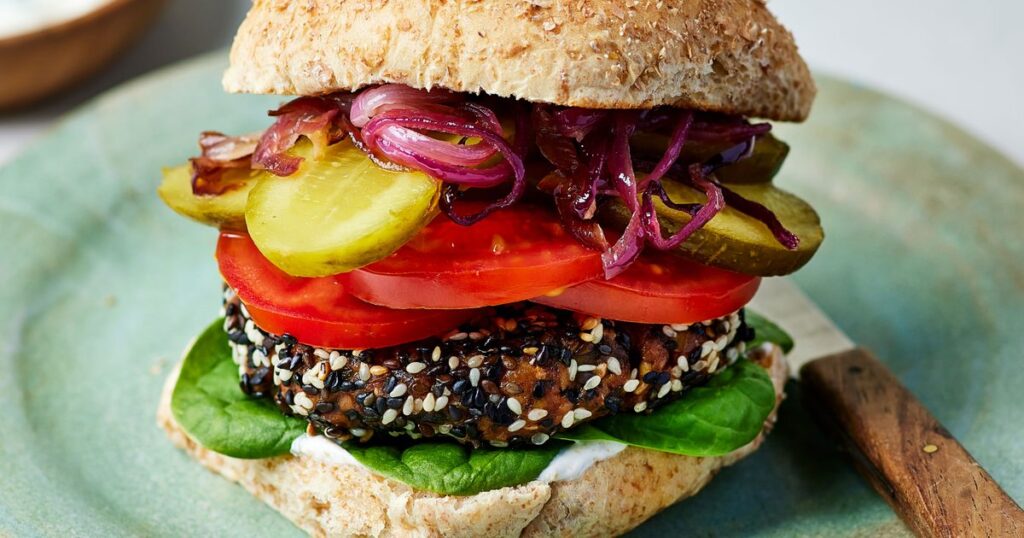Calcium-rich foods
Dairy and leafy greens such as kale, spinach, broccoli and pak choi are excellent sources of calcium and vitamin K, essential for bone health. Adequate intake of these nutrients, along with vitamin D, can help reduce the risk of osteoporosis post-menopause.
Oily fish
Salmon, mackerel, and sardines are rich in omega-3 fatty acids, which have been shown to support mood, cognitive function and cardiovascular health during menopause.
Wholegrains
Oats, brown rice, barley and quinoa provide dietary fibre and B vitamins. They can help with weight management and reduced risk of cardiovascular disease in postmenopausal women. The fibre found in wholegrains supports our gut microbes which play a role in how well your body can use phytoestrogens, and they also influence your oestrogen levels.
Nuts and seeds
Flax, chia and sesame seeds are high in lignans, which your body changes into phytoestrogens. They may help with symptoms, and are high in omega-3 fatty acids.
Foods to limit
Ultra-processed foods
Pastries, packaged snacks and ready meals are often high in added sugar, salt and unhealthy fats. Regular consumption has been linked to worse menopause symptoms and an increased risk of chronic health issues. Try to cook from scratch as often as possible.
Caffeine
Caffeine can trigger hot flushes and worsen sleep. Try decaffeinated drinks or mint tea which can be helpful for bloating and digestion, too.
What else can I do?
Exercise
In particular, weight-bearing, strength training and aerobic exercise are important for protecting bone health, supporting cardiovascular function, improving mood and reducing hot flashes. Aim for at least 150 minutes (moderate intensity) or 75 minutes (high intensity) exercise per week. Incorporate at least two strength-training exercises such as weight training, pilates or using resistance bands.
Prioritise sleep
Hormonal changes can disrupt sleep. Aim for seven-nine hours of sleep per night. Create a calm evening routine and reduce caffeine after midday.
Stress management
High levels of stress hormones can worsen menopause symptoms like irritability and brain fog. Mindfulness and relaxation techniques like yoga or meditation have been shown to help in reducing menopausal symptoms and improving emotional wellbeing. Try to incorporate small pockets of mindfulness or gratitude into your day.
Discover more healthy eating content…
How to stock your kitchen to help ease menopause symptoms
Eat well for…bone health
The BBC Good Food Podcast – Menopause and diet
Not just for gym bros: why women need to eat more protein too (and how to get it)
How to get the most out of supplements
Dr Chintal Patel is a long-serving GP for the NHS as well as a food content creator, cookbook author and our newest regular contributor. She has a passion for nutrition and lifestyle medicine and aims to help people approach cooking and eating in a way that supports overall well-being. @drchintalskitchen
All health content on goodfood.com is provided for general information only, and should not be treated as a substitute for the medical advice of your own doctor or any other healthcare professional. If you have any concerns about your general health, you should contact your local healthcare provider. See our website terms and conditions for more information.

